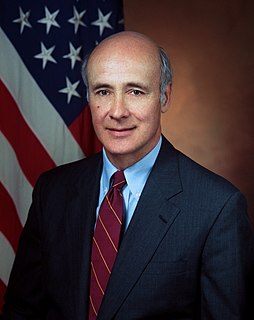A Quote by John Viney
If there is a trait which does characterize leaders it is opportunism. Successful people are very often those who steadfastly refuse to be daunted by disadvantage and have the ability to turn disadvantage to good effect. They are people who seize opportunity and take risks. Leadership then seems to be a matter of personality and character.
Related Quotes
It is only natural that people's wishes and aspirations should be realized by the leaders of the region. As this wind of change blows, it is up to the leaders to seize this opportunity to look for the better future for their own people through bold reforms before it is too late, before the people are forced to take action.
If the organisms in a species now have trait T, and this trait now helps those organisms to survive and reproduce because the trait has effect E, a natural hypothesis to consider is that T evolved in the lineage leading to those current organisms because T had effect E. This hypothesis is "natural," but it often isn't true!
Stuff doesn't matter - boats, cars, fancy things don't matter. What matters, what will matter to me, is the love of the people around me, and did I take a chance? Did I seize an opportunity to do something for people with the talents that I was lucky enough to be given? Did I make a difference in the lives of people who needed me?
If we want leaders to make good decisions amid huge complexity, and learn how to build great teams, then we should send them to learn from people who've proved they can do it. Instead of long summer holidays, embed aspirant leaders with Larry Page or James Dyson so they can experience successful leadership.
If you put these five things together - you can't use money to attract talent, you can't advertise, you can't take risks, you can't invest in long-term results, and you don't have a stock market - then we have just put the humanitarian sector at the most extreme disadvantage to the for-profit sector on every level, and then we call the whole system charity, as if there is something incredibly sweet about it.

































